Sarah Kathleen Barbrow
Posts tagged with Library Instruction
Showing 1 - 10 of 13 items

This blog post summarizes a quick, low-tech, and timely way to assess your instruction. I write about my version of a “one minute essay” adapted as a feedback form on slips of paper, and how I use the responses to circle back with the students and faculty after the class. I reflect on how this approach, which I’ve used over the past ten years, has changed my instruction and allowed me to be more receptive to all kinds of feedback.

As we approach five years since the drastic shutdown and isolation techniques due to the COVID-19 pandemic, it seems appropriate to reflect on an assessment project conducted during 2020-2021. As librarians and students attempted to pivot to an all online learning and teaching experience, research service providers quickly needed to know more about our research consultation service. Struggling with a crisis, we also learned how to conduct assessment work in sensitive and empathetic ways.

Have you ever done a one-shot instruction session and thought, “I’m overwhelmed with the amount of information I talked about and I’m a librarian. I wonder how the students feel?” I felt that after teaching several capstone engineering courses. So I decided to create a series of videos instead. This blog post describes what I learned about students’ library learning preferences.
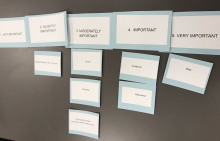
Source evaluation is an important skill in our information landscape, which is why librarians teach this concept to students during course-integrated information literacy sessions. As part of an IMLS grant, our research team is conducting a two part study to understand the impact of library instruction on students’ evaluation of sources. In this post, we discuss the use of a questionnaire and role-playing interviews to learn more about students’ confidence in their evaluation abilities.

How do we begin applying a critical lens towards assessing library instruction? Recently U-M Library Instructor College and the The Feminist Pedagogy Reading Group discussed Maria Accardi’s book chapter "Teaching Against the Grain: Critical Assessment in the Library Classroom."
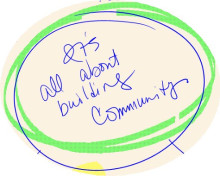
What does it mean to evaluate assessment practices through a DEIA lens? Sheila Garcia, Resident Librarian in Learning and Teaching, shares her personal journey applying a critical lens to her capstone project that centers the experiences of undergraduate language brokers.
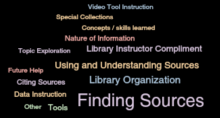
Assessing library impact on student learning is essential for demonstrating libraries’ integrated value and commitment to higher education. In 2018 the author investigated faculty perceptions of student learning in library instruction sessions, and as a result, revealed that faculty observe enhanced learning when their students participate in library instruction opportunities.
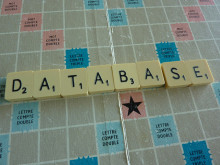
In this post, the author describes how they used the assessments of a revised library curriculum for the College of Pharmacy to demonstrate the value of the sessions for students, and to stimulate the creation of a new learning object - a game - to improve student learning.
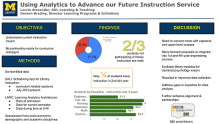
The 2018 Library Assessment Conference (https://libraryassessment.org/) brought together a community of practitioners and researchers who have responsibility or interest in the broad field of library assessment. This post recaps the conference poster content presented by Laurie Alexander and Doreen Bradley about how analytics advanced the Library's internal understanding of the course-integrated instruction provided by Library staff.
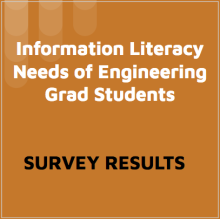
In this study, engineering librarians Leena Lalwani, Jamie Niehof, and Paul Grochowski sought to learn from graduate students in the College of Engineering (CoE) how these students could benefit from more instruction on U-M Library resources.